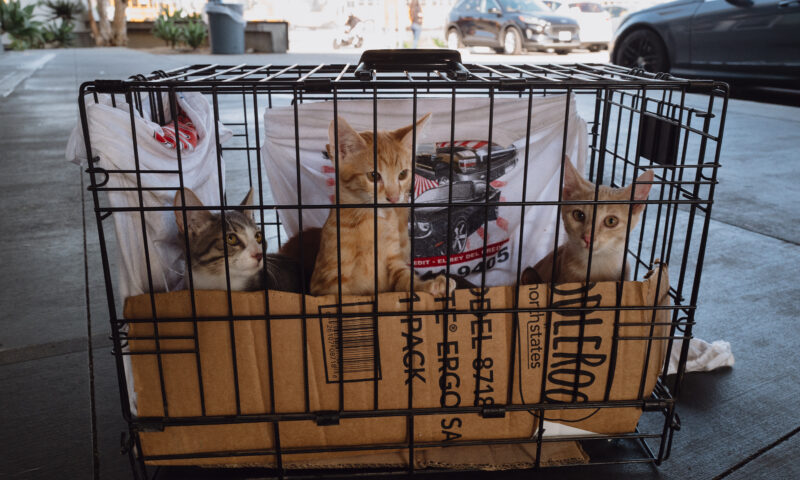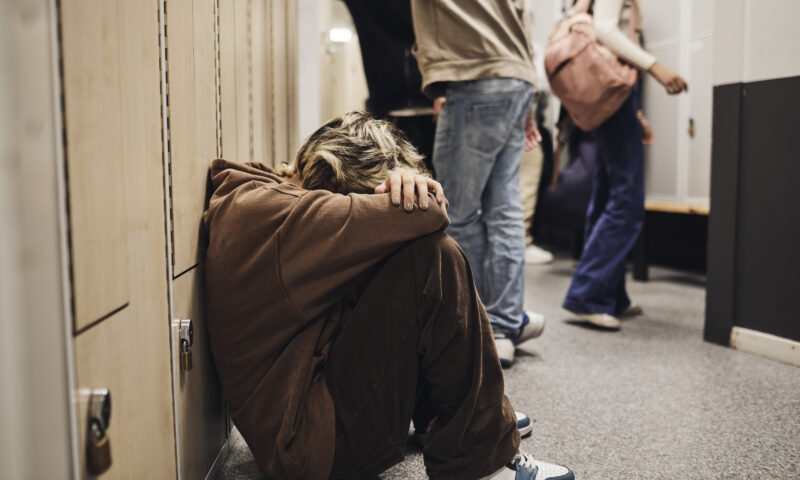Excavating The Future
Excavating the Future: Stopping AAPI Hate
Manjusha Kulkarni, co-founder of Stop AAPI Hate, talks about the surge in anti-Asian harassment and violence during the pandemic and the communities that are pushing back.
In spring 2021 I moved to San Francisco, against the tide of tech workers moving out. I wound up in the Sunset District, where Asians — mostly Chinese — make up nearly 50% of the population. As I got to know my new neighborhood, I started noticing a poster in many shop windows depicting a white-haired, bespectacled man with a warm smile. The text read, “JUSTICE FOR VICHA.”
Vicha Ratanapakdee, I soon found out, was an immigrant from Thailand who’d died after being assaulted while on his morning walk in what his family and community saw as a hate crime. There was a dearth of media coverage in the immediate aftermath of the killing. But activists helped to make the invisible, visible. A suspect in the case was charged and is set to stand trial.
Making the invisible, visible is the mission of Stop AAPI Hate, an organization founded at the beginning of the pandemic that set about aggregating hate incidents against Asian Americans and Pacific Islanders nationwide. Among the immediate findings was that the vast majority of incidents weren’t so much acts of physical violence as harassment in the form of hate speech in public spaces. Stop AAPI Hate’s reports have highlighted a problem that permeates everyday life for Asians in this country.
To gauge what can be done to address the epidemic of hate, we spoke with Manju Kulkarni, one of the founders of Stop AAPI Hate, in the wake of the publication of its report documenting over 11,000 incidents during the first two years of the pandemic. Kulkarni is also the executive director of AAPI Equity Alliance and a member of the Los Angeles City Ethics Commission.
Even as AAPI communities have endured pandemic-related scapegoating that recalls some of the darkest chapters of American history, their demographic, cultural and political presence continues to flourish. Yet even Los Angeles County saw a 76% increase in hate crimes perpetrated against AAPIs in the first year of the pandemic alone.
But just as we saw other communities of color rise up for racial justice in the summer of 2020, AAPIs have organized to change the narrative — in the media, on the streets and even in state legislatures.
As for addressing hate in everyday life, language is the only antidote for it — a shared language that finds common ground to fight the structures of power that keep us apart and fuel hate to begin with.
Copyright 2023 Capital & Main

-

 Column - State of InequalityJanuary 22, 2026
Column - State of InequalityJanuary 22, 2026On Eve of Strike, Kaiser Nurses Sound Alarm on Patient Care
-

 Column - California UncoveredJanuary 14, 2026
Column - California UncoveredJanuary 14, 2026Keeping People With Their Pets Can Help L.A.’s Housing Crisis — and Mental Health
-

 Latest NewsJanuary 16, 2026
Latest NewsJanuary 16, 2026Homes That Survived the 2025 L.A. Fires Are Still Contaminated
-

 The SlickJanuary 20, 2026
The SlickJanuary 20, 2026The Rio Grande Was Once an Inviting River. It’s Now a Militarized Border.
-

 Column - State of InequalityJanuary 15, 2026
Column - State of InequalityJanuary 15, 2026When Insurance Says No, Children Pay the Price
-

 Latest NewsJanuary 21, 2026
Latest NewsJanuary 21, 2026Honduran Grandfather Who Died in ICE Custody Told Family He’d Felt Ill For Weeks
-

 The SlickJanuary 19, 2026
The SlickJanuary 19, 2026Seven Years on, New Mexico Still Hasn’t Codified Governor’s Climate Goals
-

 Latest NewsJanuary 22, 2026
Latest NewsJanuary 22, 2026‘A Fraudulent Scheme’: New Mexico Sues Texas Oil Companies for Walking Away From Their Leaking Wells
